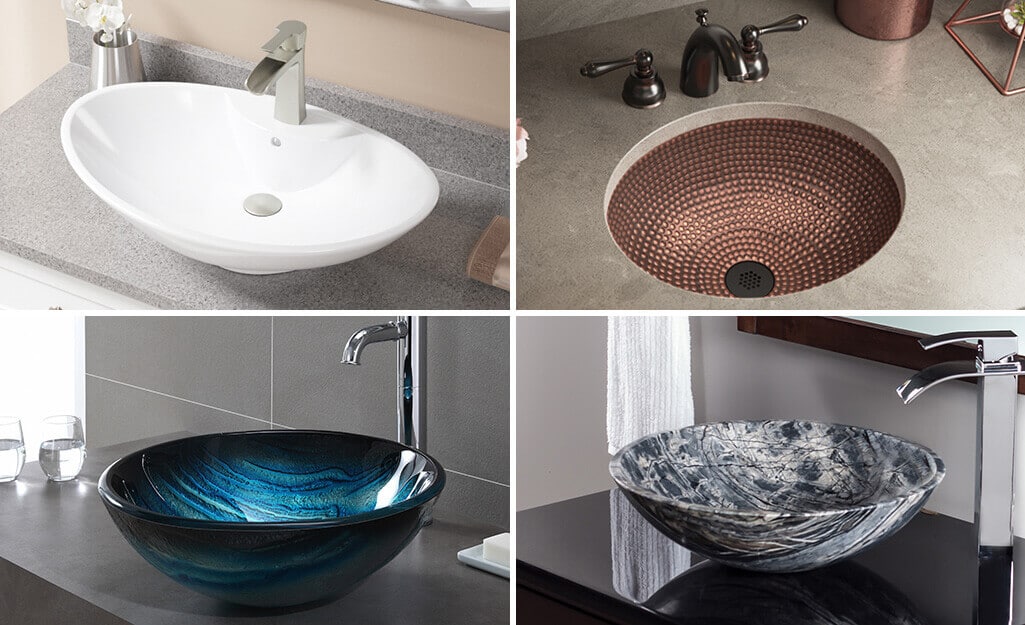The Top 5 Bath Sink Materials and their Pros and Cons

Which Material is Right For You
Bathroom sinks like humanity has evolved over time. Leaving the undermount sunken confines of the vanity, they now sit proudly on top of the counter in plain view heralding their beauty for all to see.
But not only has their place on the vanity changed, the materials which they were once limited to have also diversified. The top five rated bathroom sink materials according to Consumer Reports are: Enamel, Stainless Steel, Glass, Vitreous China, Acrylic and Solid Surfacing.
All of these materials are used widely throughout the industry and each has its pros and cons depending upon your individual bathroom needs.
Read more: The Joy of Television in Your Bathroom
Enamel – Enamel Cast Iron and Enameled Steel sinks get the highest marks for bathroom sinks. They range in price from (100-400) dollars for Enamel Cast Iron and about (40-60) dollars for Enameled Steel.
These types of bathroom sinks hold the highest score when it comes to temperament and resistance against stains, scratches, dents or shattering, dings or chips and heat.
Glass – Tempered glass sinks rate very high for resistance to heat, staining, and dents or shattering and have an above average ability to cope with scratches. The only downside of glass is its below average ability to defy dings or chips.
The upside to Glass over Vitreous China was that if a glass sink broke it left larger less threatening pieces than the jagged shards from vitreous china. The average Glass sink cost about (300-700) dollars.
Read more: Sewing a Shower Curtain
Vitreous China – Or Porcelain sinks, range in price from (75-500) dollars, Vitreous China gets very high marks for resistance to stains and heat. Above average, for scratches but is only fair when it comes to dents or shattering and dings or chips.
Most Popular New Styles
Stainless Steel – These sinks are probably your best buy when it comes to bathroom fixtures. They are above average in every aspect against stains, scratches, dents or shattering, dings or chips and get very high marks when it comes to overcoming heat.
They are priced slightly above the rest (300-750) dollars but offer the most bang for your buck. One of the things that we found was that manufacturers usually charge more for thicker, 18-gauge stainless sinks than for thinner, 23-gauge kinds.
Read more: Bathroom Wall Lights
It has been shown that both types fended off dents and heat similarly, and silenced noise just as well. So thicker does not necessarily mean better.
Acrylic – Range in price from (40-80) dollars. While these acrylic sinks get very high marks when it comes to resisting dents or shattering and dings or chips, they have below average resistance to scratches and an even more dismal score when it comes to resisting heat. Just remember you get what you pay for.
Solid Surfacing – Is the least impressive material for bathroom sinks due to the below average resistance to scratches and average score when it comes to dents, stains, scratches, chips or heat. The only saving grace of this material is the midrange price of (125-225) dollars.
We at BathroomGuru Review feel that Glass and stainless steel sinks are among the two best new materials that are making inroads into the style and shape of the bathroom sink landscape.
Read more: Freestanding Storage Units
